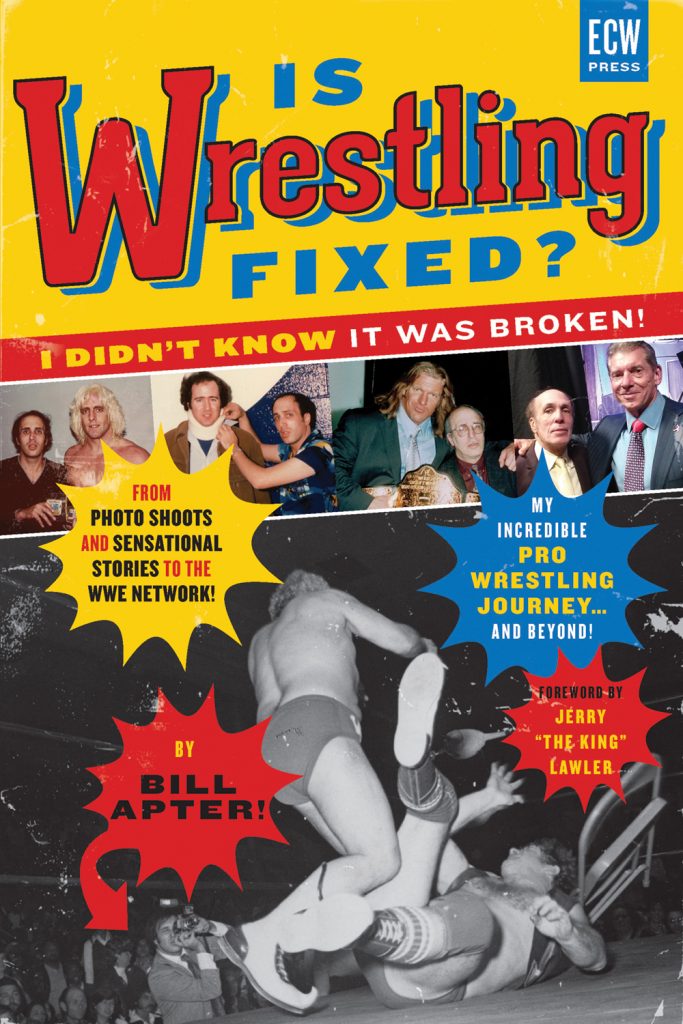
Is Wrestling Fixed? (2015), Bill Apter, 280 pages, ECW Press, ecwpress.com, $19.95
In wrestling terminology, there are two types of journalism: the dirt sheets (such as Dave Meltzer’s The Wrestling Observer) which give “smart” fans the scoop on the inner workings of the business, and “Apter mags” like Pro Wrestling Illustrated, publications which (unofficially) expanded on the in-ring storylines and produced boxing style rankings in their time. The latter rags are named for journalist Bill Apter, whose 50 years covering the industry spanned the collapse of the old National Wrestling Alliance territorial syndicate, the rise of the WWF/E and even the death of “kayfabe,” the genre’s carny-esque secret code regarding the staging of matches and storylines.
With his unique experience and perspective, a person in Apter’s position could write a damn near definitive book on the business, but there’s a hitch—five decades of writing and photographing wrestling hasn’t done much to improve his skill at either one. Apter’s success was based on his dauntless enthusiasm and willingness to play ball with the talents and promoters. He just wanted to be part of the show, moulding the magazines he edited into the wrestling equivalent of legitimate sporting journals like Sports Illustrated; Apter is a “journalist” in the same sense that a wrestler is a “fighter.”
Apter’s book is anecdotal, consisting primarily of feel-good stories about times he got to hang out with his idols; even when he runs afoul of a wrestler, such as being spat upon by “Macho Man” Randy Savage, each bite-sized chapter inevitably ends with a hug and Apter’s assurance no hard feelings were had. While too many wrestling memoirs descend into petty attempts to avenge perceived slights (see Flair, Ric), Apter’s book glides along the surface of a fascinating but often seedy and troubling business with little more insight than an average issue of PWI, and far less camp value.
Is Wrestling Fixed? is hard to recommend even to wrestling fanatics; the interested would be better served by memoirs such as Mick “Mankind” Foley’s Have a Nice Day or J.J. Dillon’s Wrestlers are like Seagulls, or (actual) journalist David Shoemaker’s recent genre-history The Squared Circle. (JM Francheteau)
